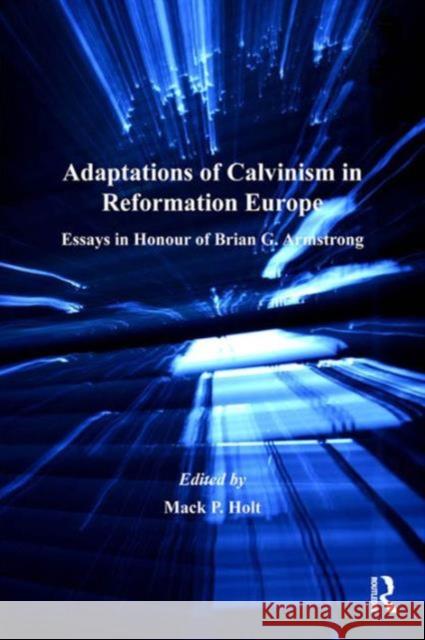Adaptations of Calvinism in Reformation Europe: Essays in Honour of Brian G. Armstrong » książka
Adaptations of Calvinism in Reformation Europe: Essays in Honour of Brian G. Armstrong
ISBN-13: 9780754651499 / Angielski / Twarda / 2007 / 266 str.
Adaptations of Calvinism in Reformation Europe: Essays in Honour of Brian G. Armstrong
ISBN-13: 9780754651499 / Angielski / Twarda / 2007 / 266 str.
(netto: 695,40 VAT: 5%)
Najniższa cena z 30 dni: 705,23 zł
ok. 22 dni roboczych
Bez gwarancji dostawy przed świętami
Darmowa dostawa!
Traditional historiography has always viewed Calvin's Geneva as the benchmark against which all other Reformed communities must inevitably be measured, judging those communities who did not follow Geneva's institutional and doctrinal example as somehow inferior and incomplete versions of the original. Adaptations of Calvinism in Reformation Europe builds upon recent scholarship that challenges this concept of the 'fragmentation' of Calvinism, and instead offers a more positive view of Reformed communities beyond Geneva. The essays in this volume highlight the different paths that Calvinism followed as it took root in Western Europe and which allowed it to develop within fifty years into the dominant Protestant confession. Each chapter reinforces the notion that whilst many reformers did try to duplicate the kind of community that Calvin had established, most had to compromise by adapting to the particular political and cultural landscapes in which they lived. The result was a situation in which Reformed churches across Europe differed markedly from Calvin's Geneva in explicit ways. Summarizing recent research in the field through selected French, German, English and Scottish case studies, this collection adds to the emerging picture of a flexible Calvinism that could adapt to meet specific local conditions and needs in order to allow the Reformed tradition to thrive and prosper. The volume is dedicated to Brian G. Armstrong, whose own scholarship demonstrated how far Calvinism in seventeenth-century France had become divided by significant disagreements over how Calvin's original ideas and doctrines were to be understood.











